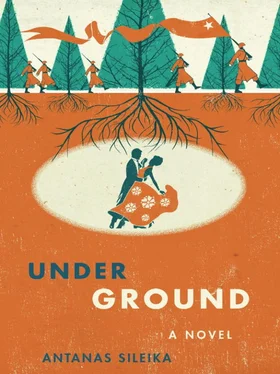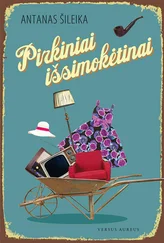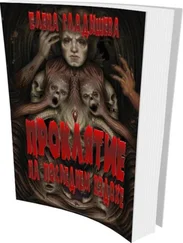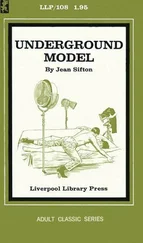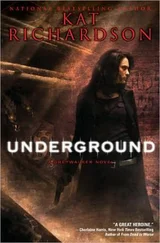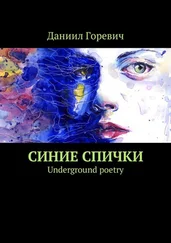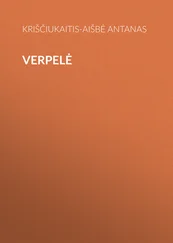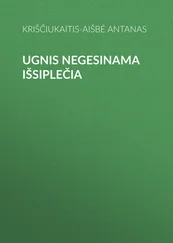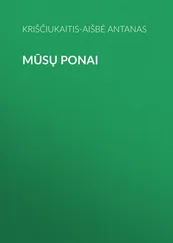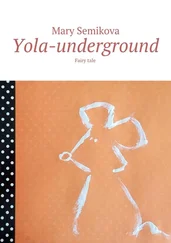“To tell you the truth, it’s a little disappointing. I was hoping you could assign me to a partisan group where someone like me could be head of propaganda.”
“Maybe we should just start with this. But you must be very secretive and tell no one what I’ve asked.”
Rimantas gave him a withering look. “I am not as stupid as I seem.”
“I’m sure you’re not.”
“I know partisans have code names. What’s yours?”
“It wouldn’t be much of a code name if I told it to you when you already know my real name.”
“I see. Well, maybe I could choose a code name of my own.”
“Be my guest.”
“I’d like to be called Poe.”
“Like the Italian river?”
“No, like the American writer, with an e on the end. Poe . Do you understand?”
“I think I do.”
“Do you live here, in this barn? Should I come here when I have the paper you want?”
“No. This is a neutral place. Someone will contact you to check and we’ll choose another meeting place.”
“It sounds a little like you don’t trust me.”
“Nothing personal. These are just operating procedures.”
“Do you still read poetry?”
“When I can.”
“Would you like it if, when I came, I brought some of my poetry?”
“I’d like that very much.”
“I’ve had a few things published in a journal called Lighthouse . Have you heard of it?”
“I don’t get magazines very often.”
“Well, try to see if you can find it. I’ve always valued your opinion.”
Lukas and Lakstingala left soon after Poe made his way down the wet road.
“He sounds like an idiot,” said Lakstingala when Lukas explained the conversation they had had.
“He was always eccentric. He’s a narcissist. But maybe he can help us.”
“Fools are dangerous. They mean no harm but get you killed anyway.”
“We can take another look at him later and reassess.”
“Just don’t let him anywhere near the bunkers. I don’t trust him yet and winter is no time to go digging new holes in the earth.”
“The ground isn’t even frozen.”
“No, but it’s wet. Every shovelful weighs twice what it would in the summer.”
Shortly after Lakstingala left on one of his sorties, it snowed heavily in the night and then a cold front came in. The dripping of the water stopped, but it was impossible to go outside because Lukas’s feet would break through the crust of snow and then there would be no way to mask his tracks. Lakstingala would not be coming back any time soon for the same reason.
Lukas opened the trap door and looked out onto the blindingly white snow. He felt pale and grey and would have liked to climb out and bathe himself in sunlight, but it was some consolation to be looking out on the brightness from the passageway, even if it meant that he needed to keep a blanket over his shoulders to protect himself from the cold.
He could see only tree trunks and some open meadow beyond them. There were no houses visible, but somewhere within a few kilometres lay Merkine, the town they had once taken and where his brother had died. And somewhere beyond that, he didn’t know where, Elena was apparently living.
He would need to get word out to Zoly somehow, to have a rubber raft come to pick them up at Palanga. But Lukas had no radio, and was not sure a raft would come even if he asked for one. Could he and Elena live somewhere in the country with false documents? Perhaps, but the drunken forger was long gone and Lukas did not know where one got false documents now.
They could give themselves up and hope to have some sort of life if they survived deportation, but Lukas had not heard of anyone coming back. Besides, he had killed too many Reds and would not be pardoned unless he betrayed others, such as Lakstingala. Maybe not even then.
Just as Lakstingala had said some things were not to be talked about, so some things did not bear much thought. This must be the way animals lived, in the here and now. He would wait and see. He would deal with his future as it came at him.
Three days later, the weather warmed and it started to rain. The earth was still frozen, but soon it would warm enough for the roof to begin leaking again. Lukas watched the snow melt with all the interest of a farmer waiting for spring. Anything was better than waiting out the winter in a hole. One day, patches of mud began to show amid the snowbanks, and the following morning, just before dawn, Lakstingala tapped four times on the door twice, their agreed signal. Lukas embraced him as a combination comrade and friend, and even as a kind of uncle who came bearing gifts.
On the tiny underground table Lakstingala set out a cheese, three sausages, a brick of heavy black bread, a jar filled with soup that was still a little warm, and a small bottle of liqueur. And then, from his knapsack, he took a small portable typewriter and a stack of carbon paper, as well as twenty sheets of typing paper.
“You still can’t move around much,” he said, “so at least we can put you to work in your old profession, writing the newspaper. The typewriter has no ribbon, but if you strike the keys hard enough you can get four carbon copies.”
“And have you brought me news as well?” asked Lukas.
He had. Lozorius would meet him in the bunker in a week. In the meantime Rimantas had found some paper and wanted to see Lukas again.
This time they met in a granary, a small building with barely enough room for the two of them to fit inside. Lakstingala stood outside on the porch as Rimantas and Lukas huddled inside on a bench, their knees almost touching.
“I brought a little of my poetry,” said Rimantas. “Can I read it to you?”
The building had a small window and Lukas could see the outline of Lakstingala as he surveyed the farmyard.
“By all means.”
And so Rimantas began to read as Lukas listened with a growing sense of unreality. He liked Rimantas and remembered him fondly from their student days, but this poetry of his was terrible. How dark it all was, as dark as plowed earth in the rain.
Rimantas read at great length about inner anguish, about pain and fear. Intellectually, Lukas could see that everything Rimantas wrote was true, a reflection of the lives of the people in the country, but emotionally he could barely stand to hear it. Lukas himself had not been feeling all that hopeful, but there was nothing like seeing someone in a darker mood still to make him realize he had always been better off than he knew.
“Well,” said Rimantas after an interminable reading, “what do you think of my poetry?”
“I think you handle the language very well. I think that your themes are very dark, though.”
“Yes, exactly. I’m the only writer who’s telling the truth. Nobody is writing about the interior lives of the people in this country. It’s as if we became prepsychological or something. Dostoevsky would never get into print today.”
“So there you have it—another reason to fight for freedom, in order to be able to print this kind of poetry.”
“I brought along the Lighthouse magazine too. I’m involved a little bit there.”
“You’re an editor?”
“Not exactly. I’m the informal correspondent from the Byelo-russian marches.”
“That’s the place where you’re going to teach in the fall, right?”
“It will be more bearable if I’m assigned to write from there.”
“And how are your typing skills?”
“I am an excellent typist. When I was a student before the war I worked in the theatre office. I’m fast and my accuracy is brilliant.”
“Good. I have some handwritten articles about life in the West. Do you think you could type those up?”
Читать дальше
